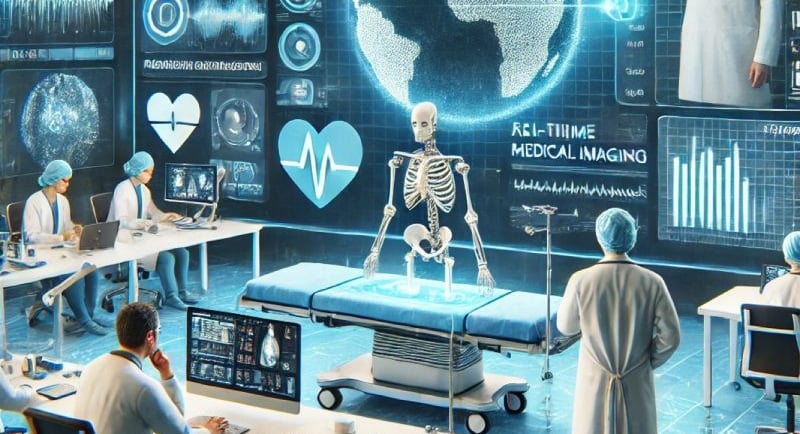Exploring the Future of Healthcare Collaboration: Harnessing AI and Real-Time Remote Technology
Explore how real-time collaboration in healthcare, powered by AI and advanced communication technologies, is transforming medical delivery. Discover innovations like telemedicine, remote surgeries, and their impact on island nations such as Indonesia, enhancing healthcare access and quality worldwide.
VITANIA SOLUTIONS
9/26/20241 min read


This article is an original piece by VITANIA SOLUTIONS.
In today’s healthcare landscape, real-time collaboration is critical. Technological advancements in remote communication and AI are breaking barriers, enabling efficient healthcare delivery globally.
Key Innovations in Remote Healthcare
1. SD-WAN Virtual Communication Networks
Innovations like SD-WAN (Software-Defined Wide Area Network) are transforming remote medical care. These networks provide high-quality, low-latency video transmission for real-time, seamless collaboration, regardless of geographical challenges.
2. AI-Powered Video Communication
AI-powered video communication platforms enable healthcare professionals to conduct high-definition video consultations from any location. This advancement allows for timely expert opinions and consultations, essential for effective patient care.
3. Remote Surgeries
Remote surgeries are revolutionizing surgical practices, allowing surgical teams to collaborate in real-time across continents. This innovation enhances operational efficiency and ensures that patients receive expert care, no matter where they are located.
4. Enhanced Medical Imaging
AI in medical imaging is improving the precision of diagnostics, reducing errors, and ultimately improving patient outcomes. This technology allows for faster analysis and more accurate results, enhancing the quality of care provided.
Impact on Island Nations
For island nations like Indonesia, these platforms are particularly revolutionary. High-definition, real-time consultations connect centralized medical hubs with remote islands, making healthcare accessible without the need for costly travel. This development is crucial for improving healthcare access in geographically isolated areas.
Empowering Local Expertise through Remote Education
Remote education platforms allow local doctors and students to access global expertise, uplifting the standard of care. This initiative fosters continuous learning and adaptation to best practices in medical treatment.
The Future with 5G Integration
5G integration promises to take these innovations further, offering faster, real-time interactions across medical devices and expanding access to critical services in underserved areas. This technology will enhance the connectivity and efficiency of healthcare systems worldwide.
Conclusion: Shaping the Future of Healthcare
As technology advances, these platforms will continue to shape the future of healthcare—enhancing efficiency, saving lives, and providing high-quality care on a global scale, especially in remote regions. The ongoing integration of AI and advanced communication technologies is essential for meeting the healthcare needs of diverse populations.
